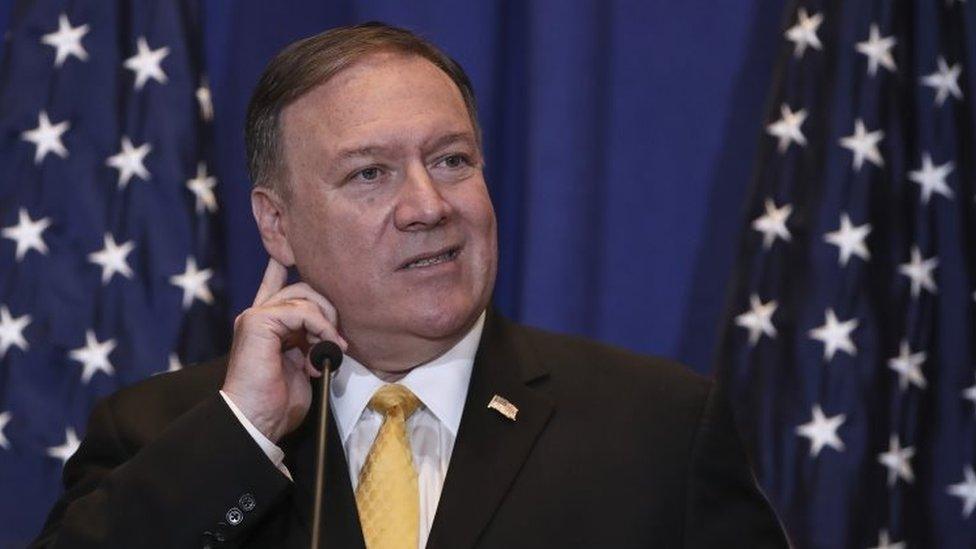Trump impeachment: Lawyer Rudy Giuliani subpoenaed for documents
- Published
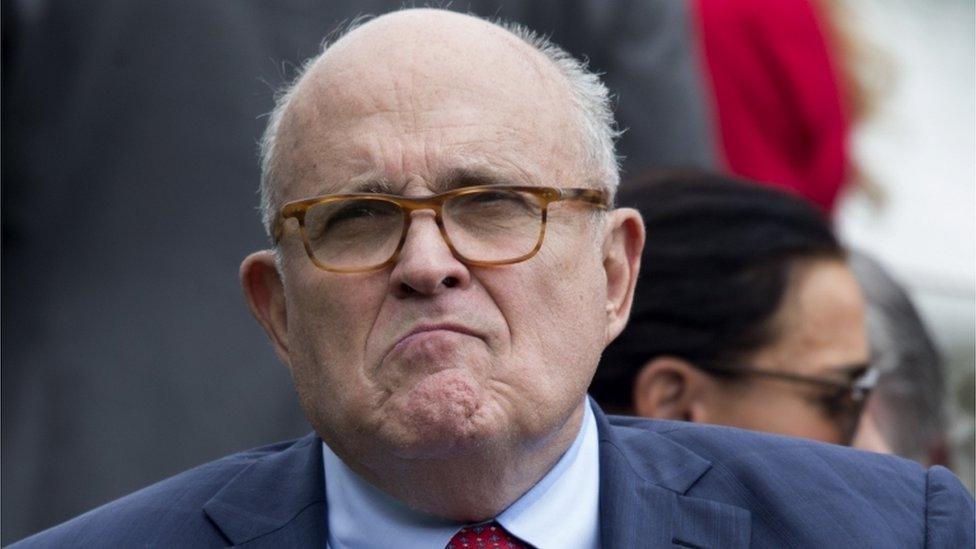
Rudy Giuliani has been subpoenaed for documents relating to Ukraine
Democrats have demanded records from the president's personal lawyer, the next step of an effort that could remove Donald Trump from office.
Rudy Giuliani has admitted to asking Ukrainian officials to investigate widely debunked corruption allegations against Democratic rival Joe Biden.
Lawmakers issued a subpoena for those communication records from Mr Giuliani.
The request is part of impeachment proceedings against Mr Trump, spurred by a whistleblower complaint.
The whistleblower, reportedly a CIA officer, revealed concerns among a number of White House officials that Mr Trump had attempted to pressure a foreign leader into investigating a Democratic political rival.
A rough transcript emerged last week, external of that call between Mr Trump and President Volodymyr Zelensky, revealing that Mr Trump urged Mr Zelensky to investigate the discredited allegations against Mr Biden, a 2020 Democratic frontrunner, and his son.
On Monday it emerged that the US secretary of state, Mike Pompeo, had listened in on the call, which is now at the centre of an impeachment inquiry against the president. Mr Pompeo was last week served with a subpoena by House Democrats.
And in a separate development on Monday, it emerged that President Trump had pushed another foreign leader for help connected to his domestic political situation. The Australian government confirmed that Mr Trump asked Prime Minister Scott Morrison to help assist the US attorney general, Bill Barr, with an investigation into the Russia inquiry that dogged Mr Trump's first two years in office.
The White House reportedly restricted access to the call's transcript to a small group of the president's aides - as officials had done with the transcript of the controversial Ukraine call.
Why was Giuliani served with a subpoena?
Three chairmen of key House of Representatives committees - Intelligence, Foreign Affairs and Oversight - sent the subpoena notice to Mr Giuliani on Monday.
The subpoena was expected, as Democrats had earlier said they wanted to question Mr Giuliani, a central figure in the saga.
On the phone call, Mr Trump asked the Ukrainian president to co-ordinate with his lawyer on any inquiry into Mr Biden and son Hunter.
What we know about Biden-Ukraine corruption claims
During a 19 September appearance on CNN, Mr Giuliani confirmed he asked Ukraine to "look into the allegations that related to my client, which tangentially involved Joe Biden in a massive bribery scheme".
In their subpoena letter, external, the chairmen said: "In addition to this stark admission, you stated more recently that you are in possession of evidence - in the form of text messages, phone records, and other communications - indicating that you were not acting alone and that other Trump Administration officials may have been involved in this scheme."
The chairmen have demanded all relevant communications be submitted by 15 October.
Mr Giuliani and the White House have not yet responded to the subpoena, though on Sunday, Mr Giuliani told ABC News, external he "wouldn't co-operate" with Mr Schiff.

Here come the subpoenas

The impeachment inquiry is official. Now come the subpoenas.
It's not surprising that Rudy Giuliani would be one of the first to receive a legal notification demanding documents related to the Ukraine investigation.
As the whistleblower complaint notes, the former New York Mayor - who is now a private citizen - effectively served as the point person for Donald Trump's behind-the-scenes Ukrainian evidence-gathering operation. That Mr Giuliani has been a fixture on US cable news television, where he's repeatedly boasted of his work for his "client," Mr Trump, only helped secure the legal bull's eye on his back.
Given Mr Giuliani's boisterous, combative demeanour of late, Democrats may be reluctant to call him to testify before an open committee hearing.
But getting their hands on relevant documents - including emails and the text messages Mr Giuliani flashed during a television appearance - may be more useful to Democrats anyway.
If they can tie Mr Giuliani's efforts to the State Department and Trump administration officials, it could help bolster their case that Mr Trump was bending US diplomatic efforts in order to advance a personal political objective.

What is the impeachment inquiry about?
An intelligence community whistleblower filed a complaint in August, saying he had an "urgent concern" that Mr Trump had used his office to "solicit interference from a foreign country" in the upcoming 2020 presidential election.
Democrats launched an impeachment inquiry last Tuesday focusing on the call flagged in this complaint, where Mr Trump spoke with the Ukrainian leader about the Biden allegations.
Former US Senator Jeff Flake: "How in the world Republicans can say the president deserves re-election"
Mr Trump's political rivals have accused him of improperly seeking foreign help to try and smear Mr Biden and using military aid as a bargaining tool.
Ukrainian ex-prosecutor general Yuriy Lutsenko told the BBC there was no reason to investigate Mr Biden or his son, who had worked for a Ukrainian energy firm.
Mr Biden had boasted about getting Ukraine's former prosecutor general Viktor Shokin fired, because he was widely seen as ineffective in tackling corruption.
The move to have him removed was also supported by the IMF and the EU as an anti-corruption effort.
There is no evidence Mr Biden was trying to protect his son.
Congress is currently in recess, but Democrats plan on remaining in Washington over the break to move "expeditiously" on with impeachment proceedings and additional subpoenas.
What else happened on Monday?
President Zelensky said he was not planning to release Ukraine's transcript, external of the call with Mr Trump, telling Reuters news agency: "There are certain nuances and things which I think it would be incorrect, even, to publish."
Meanwhile, an official told the New York Times, external that Mr Trump's request to the Australian prime minister was made during a recent telephone call, and a transcript of the conversation was restricted to a small group of aides, akin to the July Ukraine call.
The White House has not commented.
The Trump-Russia investigation began after Australian officials informed the FBI that Trump adviser George Papadopoulos told Australia's top UK diplomat that Moscow had incriminating "dirt" on Hillary Clinton.

Quick facts on impeachment
Impeachment is the first part - the charges - of a two-stage political process by which Congress can remove a president from office
If the House of Representatives votes to pass articles of impeachment, the Senate is forced to hold a trial
A Senate vote requires a two-thirds majority to convict - unlikely in this case, given that Mr Trump's party controls the chamber
Only two US presidents in history - Bill Clinton and Andrew Johnson - have been impeached but neither was convicted and removed
President Nixon resigned before he could have been impeached
- Published20 January 2020
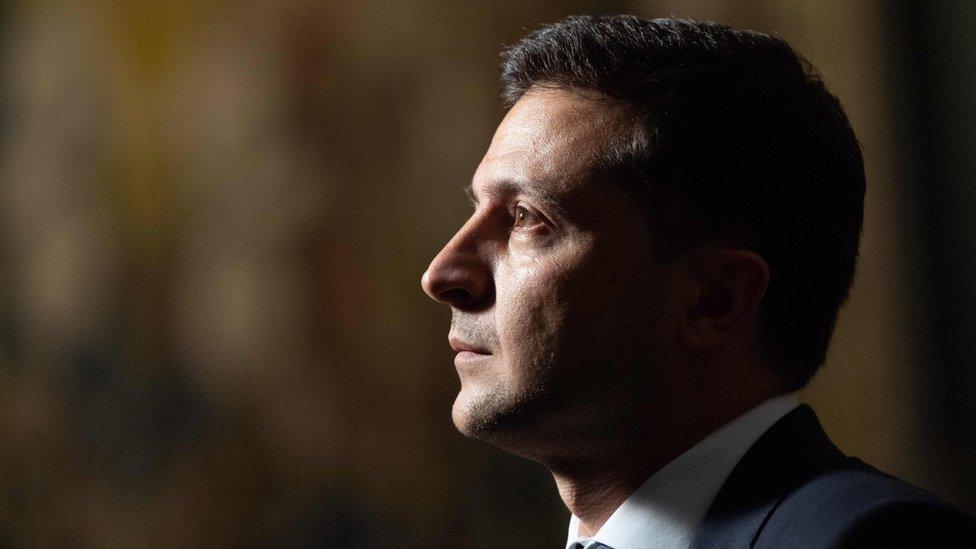
- Published5 February 2020
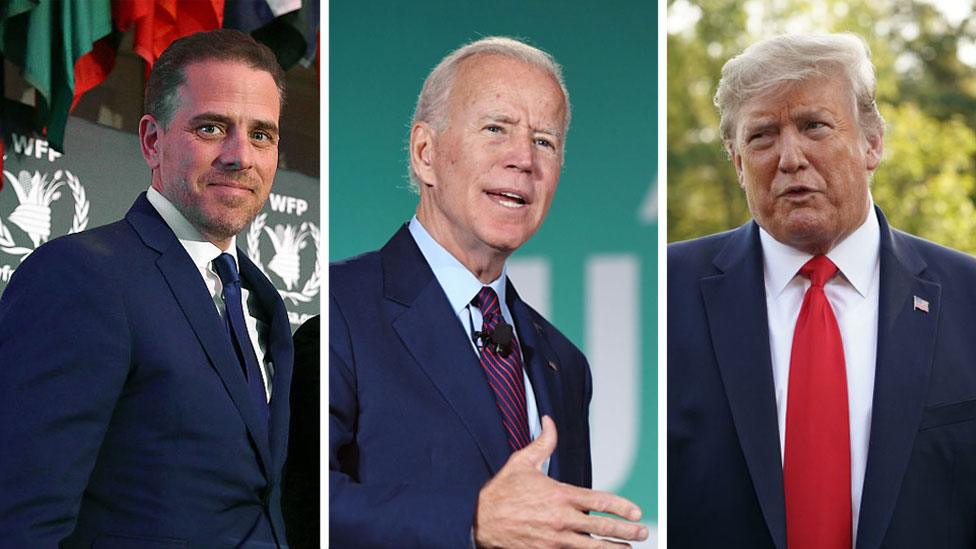
- Published28 September 2019
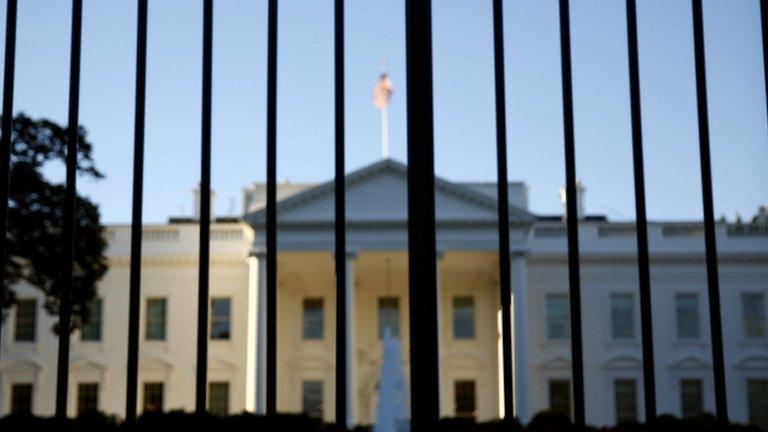
- Published19 December 2019
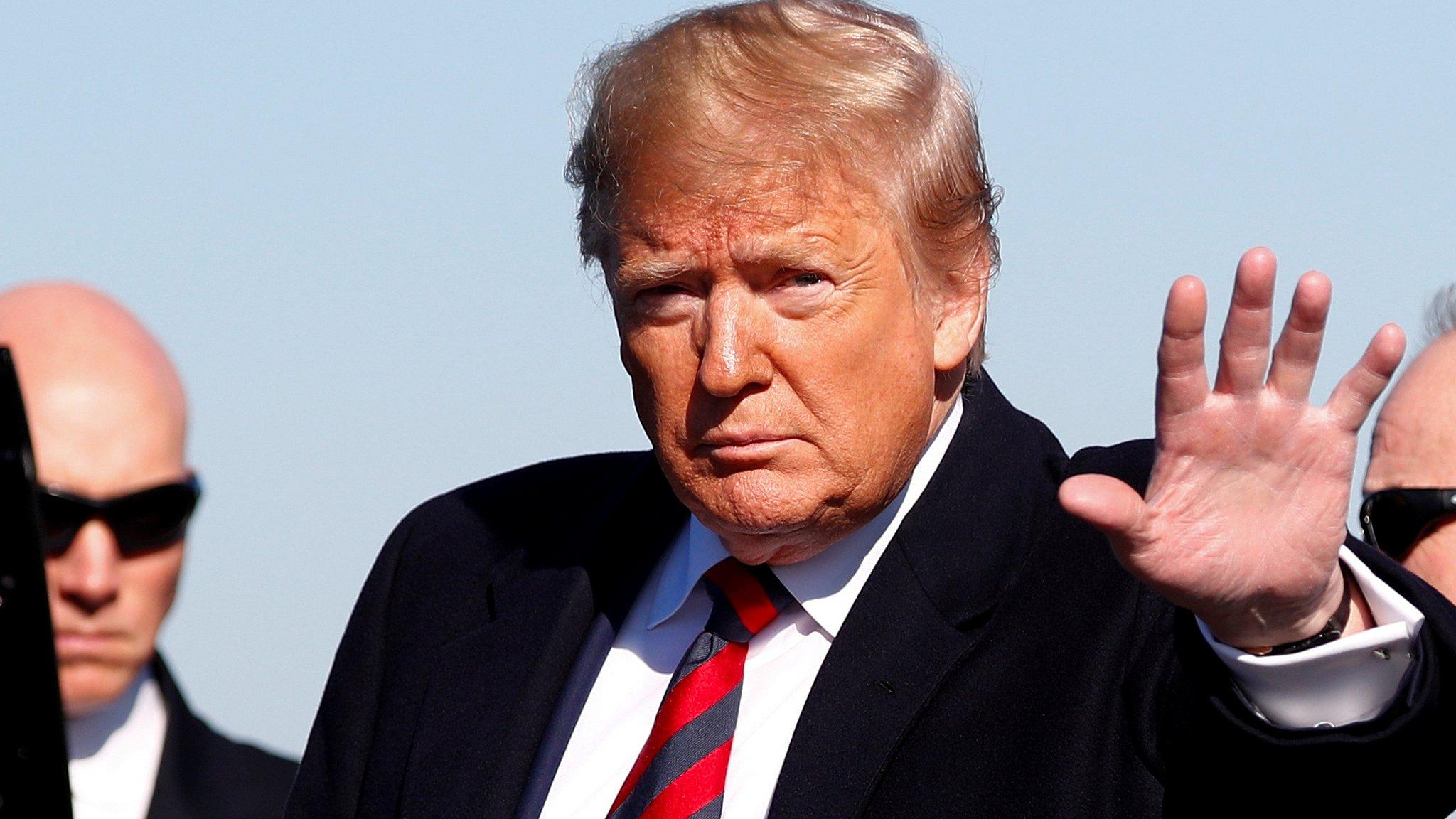
- Published25 September 2019
- Published28 September 2019
